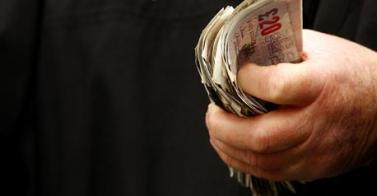Is Sport Recession Proof?
Text books will tell you that sport should be one of the few businesses to be recession proof. The argument you’ll read is that sport has legions of loyal fans and players who will remain committed and contribute financially even in difficult times. Such people will not be prepared to compromise on sport and will instead cut back on other items in the weekly spend.
Is there any substance to this argument? A recent study by Sheffield Halam University for Sport England would seem to suggest that the answer is yes. “Sport now plays a bigger part in England’s economy than at any time for the last 25 years”. Sport is boosting the wider economy and “accounts for 2.3% of all consumer spending and 1.8% of employment”. The study reveals that ”Consumer spending on sport was up by 138% in real terms between 1985 and 2008 to £17.3bn.”
Unsurprisingly, football has been an important catalyst in transforming UK sport to what it is today – a sophisticated, multi-million pound business. Integral to all this is the “explosion of media rights” where the Premier League has played a significant role. Sportswear sales are up and shirt sponsorship deals for football clubs are bringing in large revenue streams too. This year the Premier League clubs have grossed £99.75 million for their shirt sponsorship deals. Liverpool and Manchester United both signed £20 million deals per year with Standard Chartered and AON respectively. The Old Trafford club switched to a more profitable deal after its previous one with AIG for £14m.
However, if you look beneath the surface there are signs that the recession may be having an impact. Going back to Old Trafford, Manchester United released an extra 4,000 season tickets on general sale in July this year. For a club that is typically many times over-subscribed, this is a rare step. The club issued a statement insisting that their sales are “healthy in a time of recession” and pointed out that late renewals for 2009-10 ticket holders are being dealt with. A similar story is developing on the other side of the pond. The new $1.6 billion Meadowlands stadium in New Jersey, joint home of the New York Jets and New York Giants NFL football teams, with a capacity of 82,500, is having difficulty selling its seats. Back in June, the Jets was forced to make dramatic price reductions in personal seat licenses (season-tickets) as a measure to prevent vacant seats as the season starts.
Sport is a business like any other, but it does have its own unique characteristics. Sport should be competitive, tribal and co-operative (especially in the US at the team level). Like all other businesses, however, there are certain disciplines to follow. Without being too simplistic, clubs should focus on the product (performance and results), grow revenue streams, smartly manage expenses, closely monitor its competitors (of which there are many in the entertainment industry) and listen to its customers. If sport can emphasise such business disciplines, there is every reason to believe it can achieve one very important victory – beating the recession.
About author
You might also like
SPORTEL 2021: Day One Recap
This year’s prestigious SPORTEL convention kicked off in sunny Monaco today, welcoming a host of familiar faces as well as plenty of new ones. Doors opened at 8:30am with businesses
Six Founding Riders Set To Bring The Vision Of The UCI Track Champions League To Life
Olympic Champions, UCI World Champions and World Record holders join the new track cycling competition debuting in November 2021 The UCI Track Champions League is delighted to announce that six
Sports related spending to soar this summer as pre-pandemic life resumes
New insights from eBay Ads UK reveal the potential for brands to engage with an excited but nervous nation as sports events get back on track As pubs and indoor








